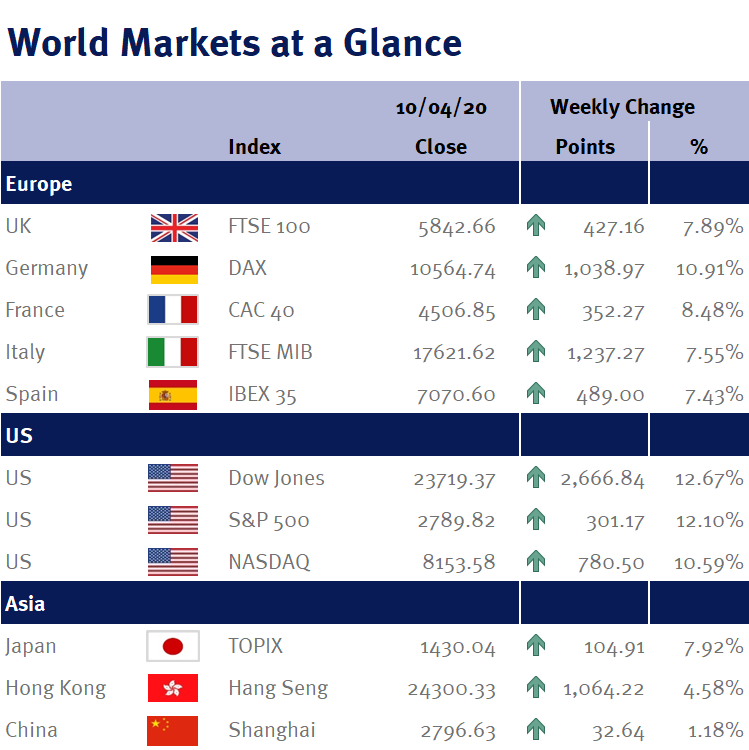There are too many details to fully explain here, but in summary, the central bank will target junk bonds, commercial loans, mortgages, and municipal debt as well as loans to large and small businesses to help mitigate the fallout from the coronavirus.
Additionally, the Fed Chair, Jay Powell, said on Thursday 9 April 2020 that he expects a very weak second quarter followed by a quick rebound in the second half of the year – which matches what we have been saying (please see here, here and here).
Equity markets were also helped by signs that the number of new cases of coronavirus may have peaked – and as a result, the estimates for the likely total number of coronavirus deaths in the US was lowered to about 60,000 from as many as 240,000 just over a week ago.
As a result, US equities recorded their biggest weekly gain since 1974, with the S&P climbing 12.10% over the week and the Dow Jones up 12.67%.
Elsewhere, the price of a barrel of Brent oil ended the week around 12% lower after a deal between OPEC and Russia to reduce oil production by 9.7m barrels a day was seen as insufficient to offset the lower demand as a result of the coronavirus lockdowns (as we have previously said, demand has probably dropped by around 25-30m barrels a day).
Looking ahead to this coming week, the quarterly US corporate earnings season gets underway, but thanks to the coronavirus it is likely to be very unpredictable. Kicking off the season, we have the banks, including Goldman Sachs, JPMorgan, Citigroup, Bank of America and Wells Fargo.
We also have US retail sales, the Fed Beige Book and the weekly jobless claims.
Elsewhere, we have Chinese Q1 GDP, retail sales, import/export data and industrial production.
Investment Management Team


